Postcard from Design Week Lagos 2024
Reporting from Nigeria’s capital during Design Week Lagos 2024, our correspondent shares his view from the streets and explores the role of design in economic evolution
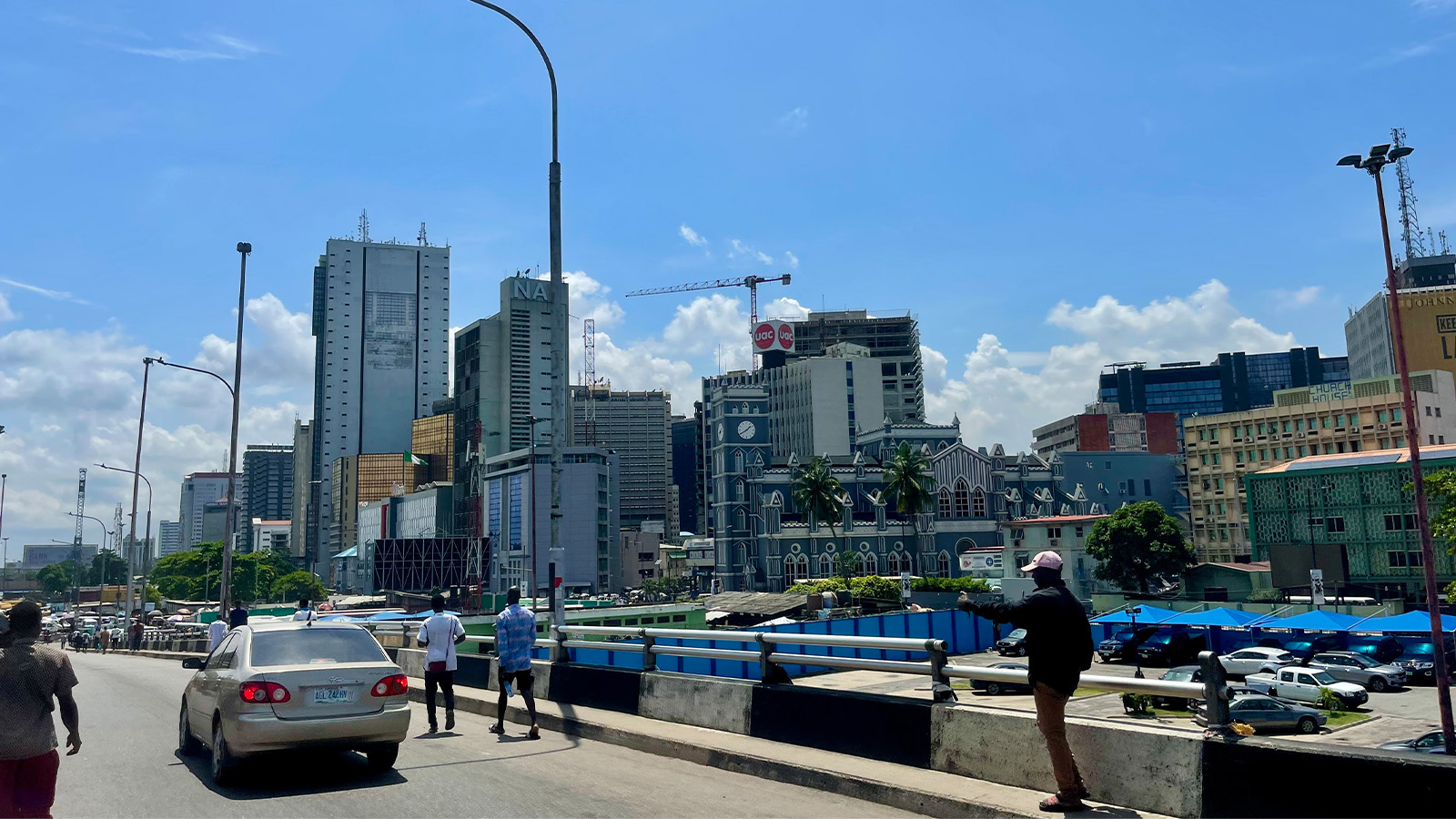
Nothing describes Lagos in October better than chaos. It’s not like the city isn’t always filled with turbulence, but there is something peculiar about October. The rush of everyone and everything reaches fever pitch in the last quarter of the year. It’s in our blood as Nigerians to make the most of anything.
Traffic tends to be more problematic. It’s the sort of congestion that leaves you at a spot for 40 minutes because someone is too big and defiant to obey traffic regulations at a T-junction. The weather is also very dramatic – always too extreme: when it’s sunny it is scorching and when rain comes it floods everywhere, and we all know what that means for a coastal city with poor drainage construction. Then there are unwarranted police stops, with officers on the lookout for young persons to either harass or extort. Regardless of their claims, police brutality is still alive and well despite the #EndSARS protest in 2020.
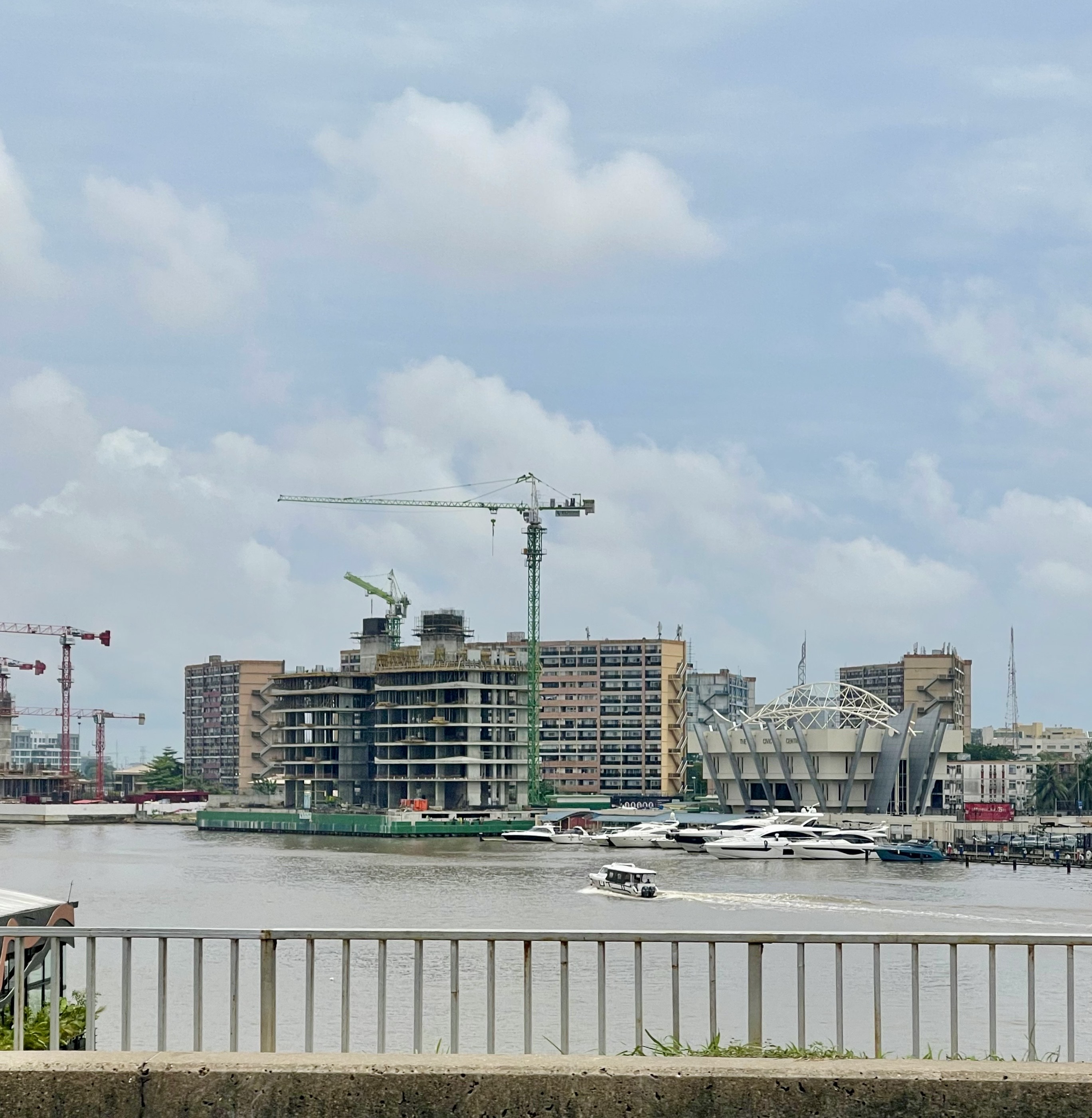
A view of Lagos civic tower, opposite is the 1004 apartment in Victoria Island
And yet there are also good things about Lagos in October. It is network-building time thanks to several events that unite creatives across many industries. Design Week Lagos is one of them. This year marked the fifth edition of the fair (23 to 27 October 2024), which was themed ‘The role of design in economic evolution’, and held once again at the Livespot Entertarium.
Design Week Lagos is way more than a fair; it is a catalyst pushing African design onto the global map. It doesn’t matter that it only lasts a few days, it’s impact lives way longer. The fair isn’t centered on just Lagos or Nigeria but brings numerous architectural and design scenes together from across West Africa.
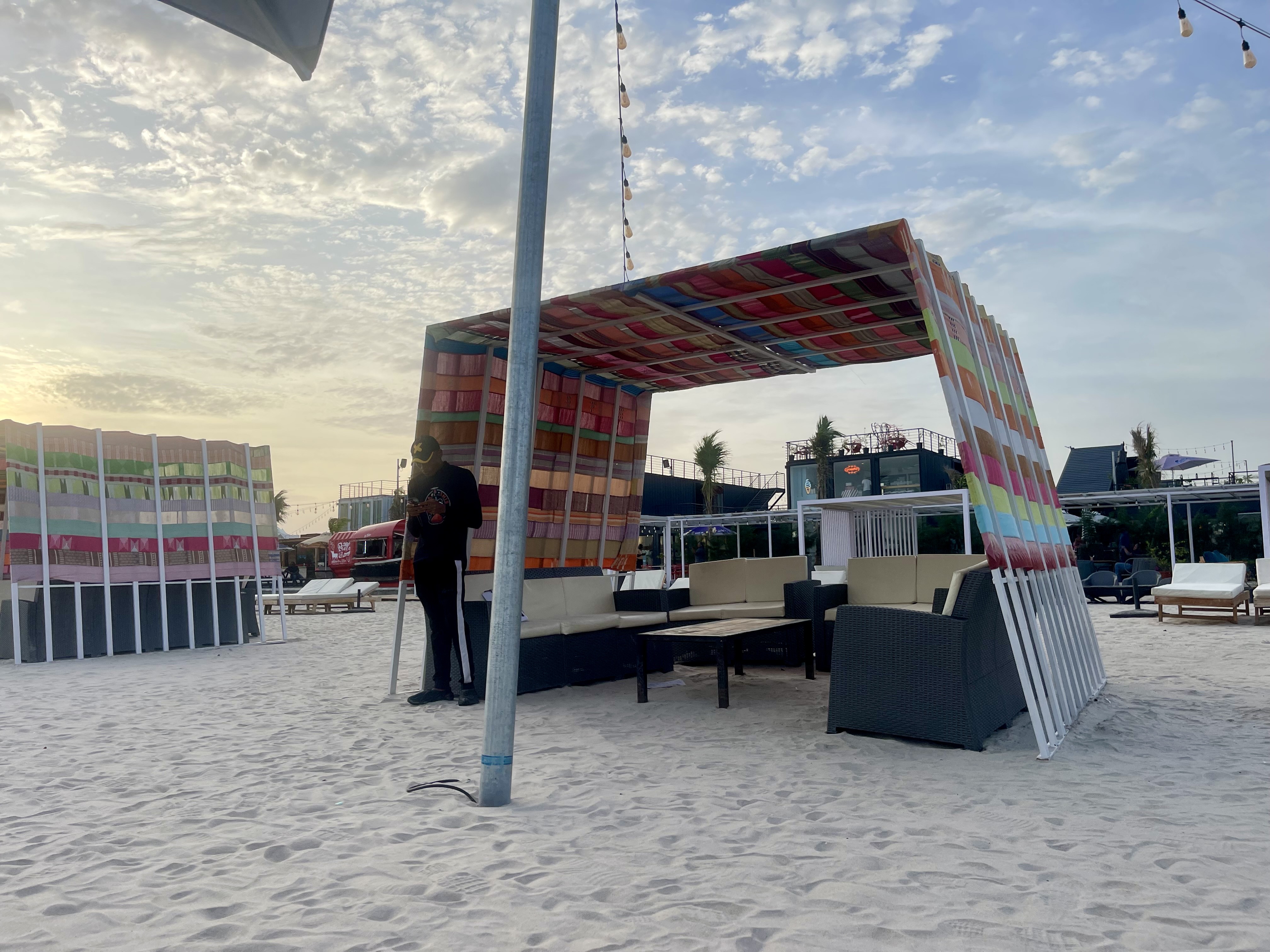
A relaxation spot at a beach
Over a five-day timeframe, we saw architects, designers, industrialists, artisans and enthusiasts together, learning about the West African design hub from the DWL panels held in a large auditorium in the same building. From building constructions to immersive experiences to new product and lighting collections and collaborations, the booths of the fair were filled with mesmerising experiences.
There were notable debuts also this year, mostly from furniture designers at the NDIC section, with exciting designs, and more innovative and experimental materials, complete with stories of their inspirations. Seven designers identified ancestral inspiration as the source of their designs, proving that homegrown culture is a hearteningly rich seam for the next generation shaping our present and future.
Highlights from Design Week Lagos 2024
‘Oji Sofas’ by Myles Igwe
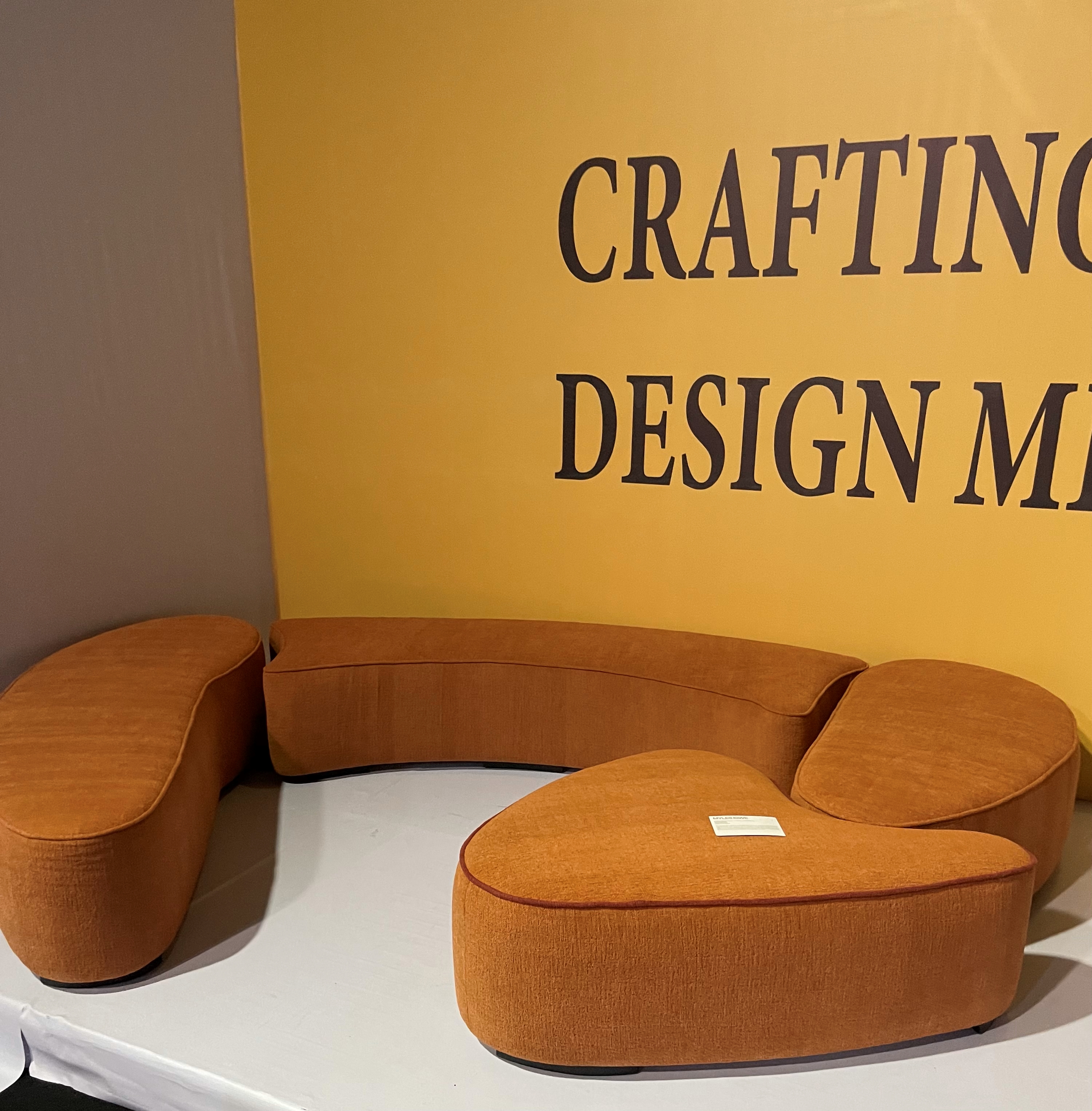
‘Oji Sofas’ by Myles Igwe
Myles Igwe has been a designer for the better part of his youth and one thing that keeps him inspired is his Igbo culture. In the past he has made furniture pieces inspired by cultural moments like the Aba women riots of 1929 or the significance of trading in Nteje, his home town. His inspiration for a set of cosy sofas comes from ‘Oji’ the Igbo name for kola nut, a sacred fruit used in several rituals in the Igbo tradition. The furniture’s forms are derived from the shape of the kola nut dissected and reconfigured to create perfectly constructed sofas, each with a different shape. Igwe describes the ‘Oji’ sofas as a spiritual embodiment of community and tradition.
Wallpaper* Newsletter
Receive our daily digest of inspiration, escapism and design stories from around the world direct to your inbox.
‘Eledere’ by Tunde Owolabi
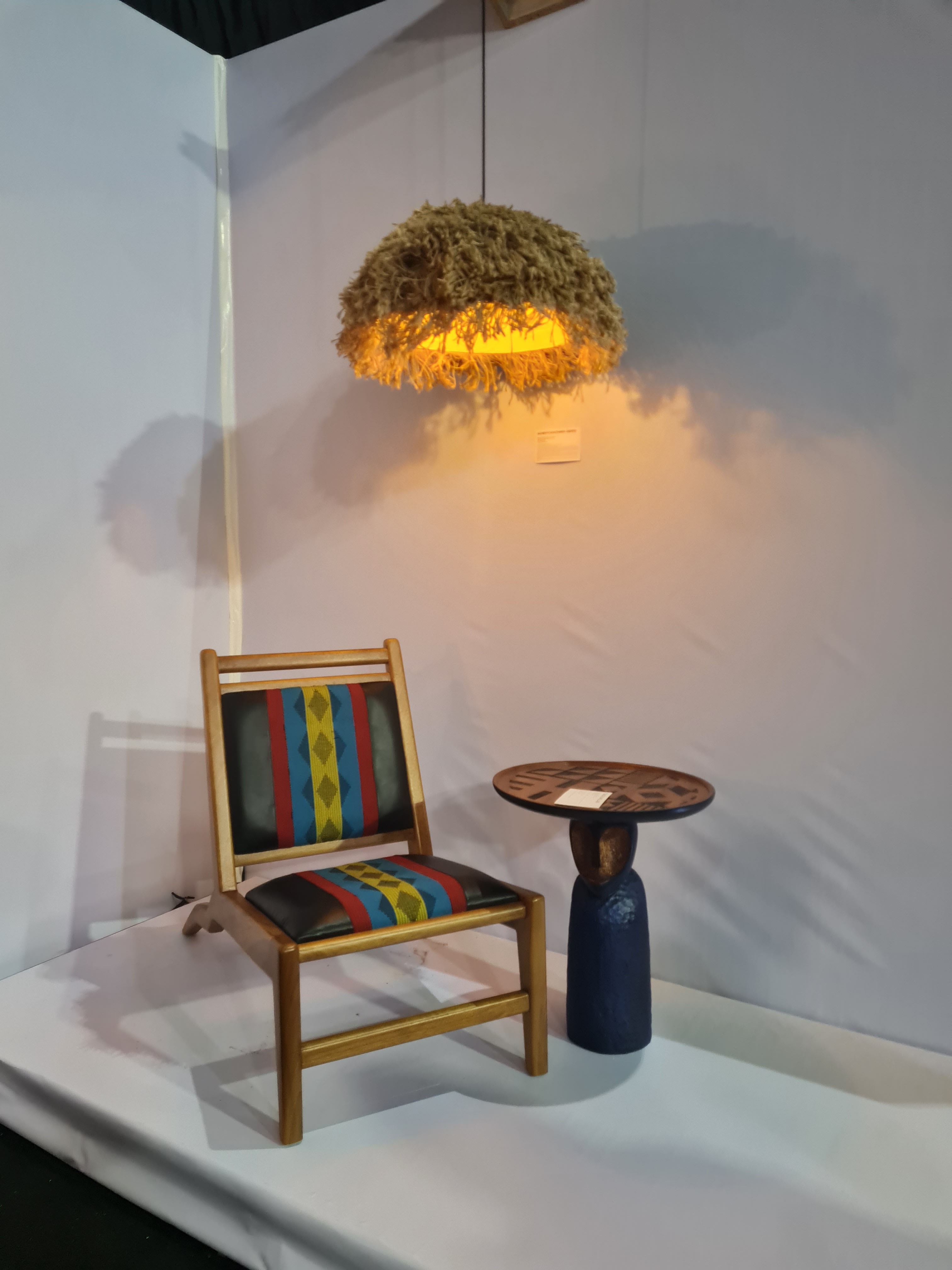
‘Eledere’ by Tunde Owolabi
How do you immortalize a workforce that is heavily looked down upon and yet is very beneficial to Lagosians? This was the question Tunde Owolabi sought to investigate in his presentation at Design Week Lagos 2024. His furniture project ‘Eledere’ put the spotlight on street hawkers – a source of great support (however overlooked) when considering the density of Lagos traffic. The table comes with a special wood carving of a woman’s face, suggesting the objects one places atop the table become her burden. The collection also features a chair, beautifully patterned with rich Yoruba symbols in a range of vibrant colours. Owolabi describes the design as a celebration of women hawkers who, despite not being appreciated enough, maintain their livelihood in harsh conditions.
‘The Eko Calendar’ by Oladela Agboola
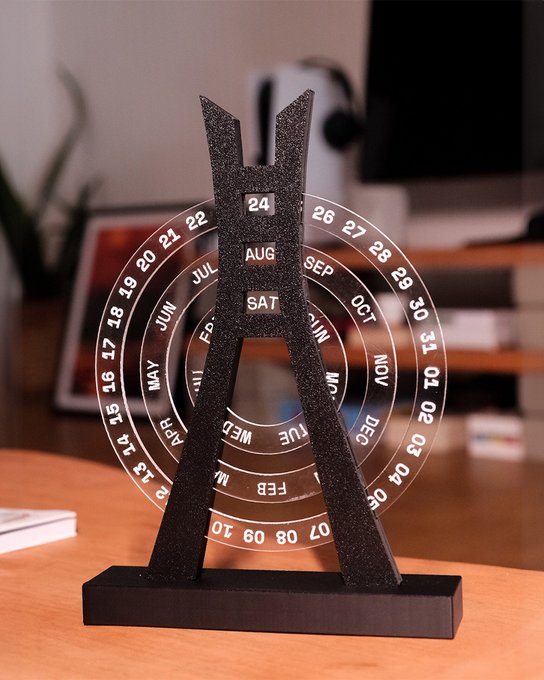
‘The Eko Calendar’ by Oladela Agboola
This familiar structure is part of the city’s architectural buzz, but to find it reimagined as a clock was an unexpected discovery. The ‘Eko’ calendar is inspired by the Lekki-Ikoyi link road, a project commissioned in 2013 and featuring dozens of cable strings to hold the 1.36km bridge in place. The bridge isn’t just a road, it’s an intersection connecting old money (Ikoyi) to new money (Lekki phase one) and that influential significance plays an important part in describing social class. Oladela Agboola has built a miniature design of the symbolic structure with Plexiglas alongside a 3D-printed silhouette in ABS [plastic] to allow for customisation and waste reduction.
‘Zero-weld steel dining set’ by Oluwa Kayinsade
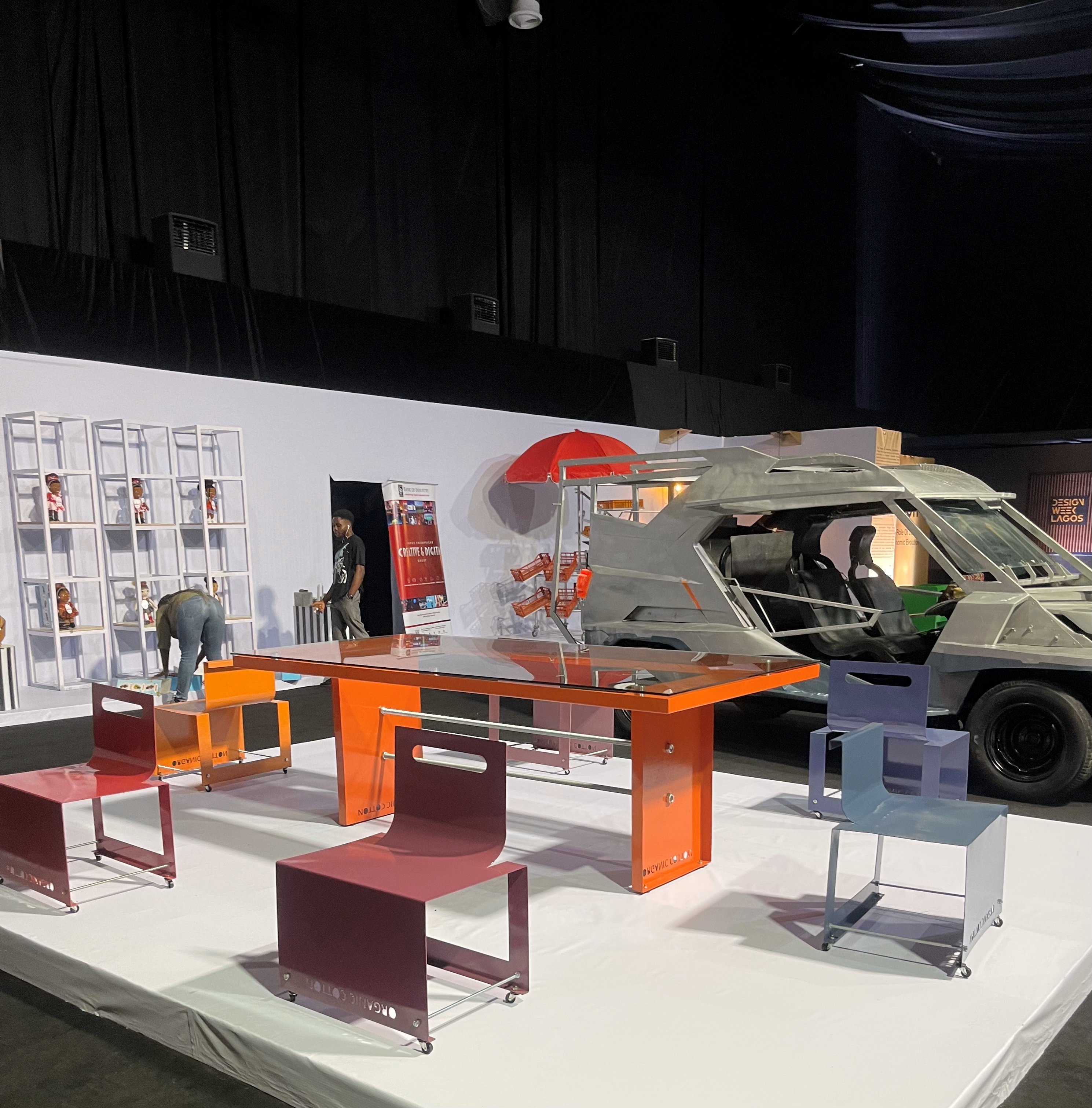
‘Zero-wield steel dining set’ by Oluwa Kayinsade
We talk often about how we might integrate AI into design for more effective and productive output, especially as a country in the global south. So it was little surprise to find designers addressing the subject here. Architect Oluwa Kayinsade’s ‘zero-weld steel dining set’ was one of the week’s highlights. It is a combination of laser-printed steel dinner sets, surrounding a table made of steel and glass. The designer describes it as ‘a modern look created to address the challenges of limited skilled labour and production resources in Nigeria’, but the real story lies in its artistic quality. Impressively for a product with no welding traces by human hand, it still has durability and soul.
‘Homenka’ collaboration by Zoe Chinonso Ene and Tayo Adenaike
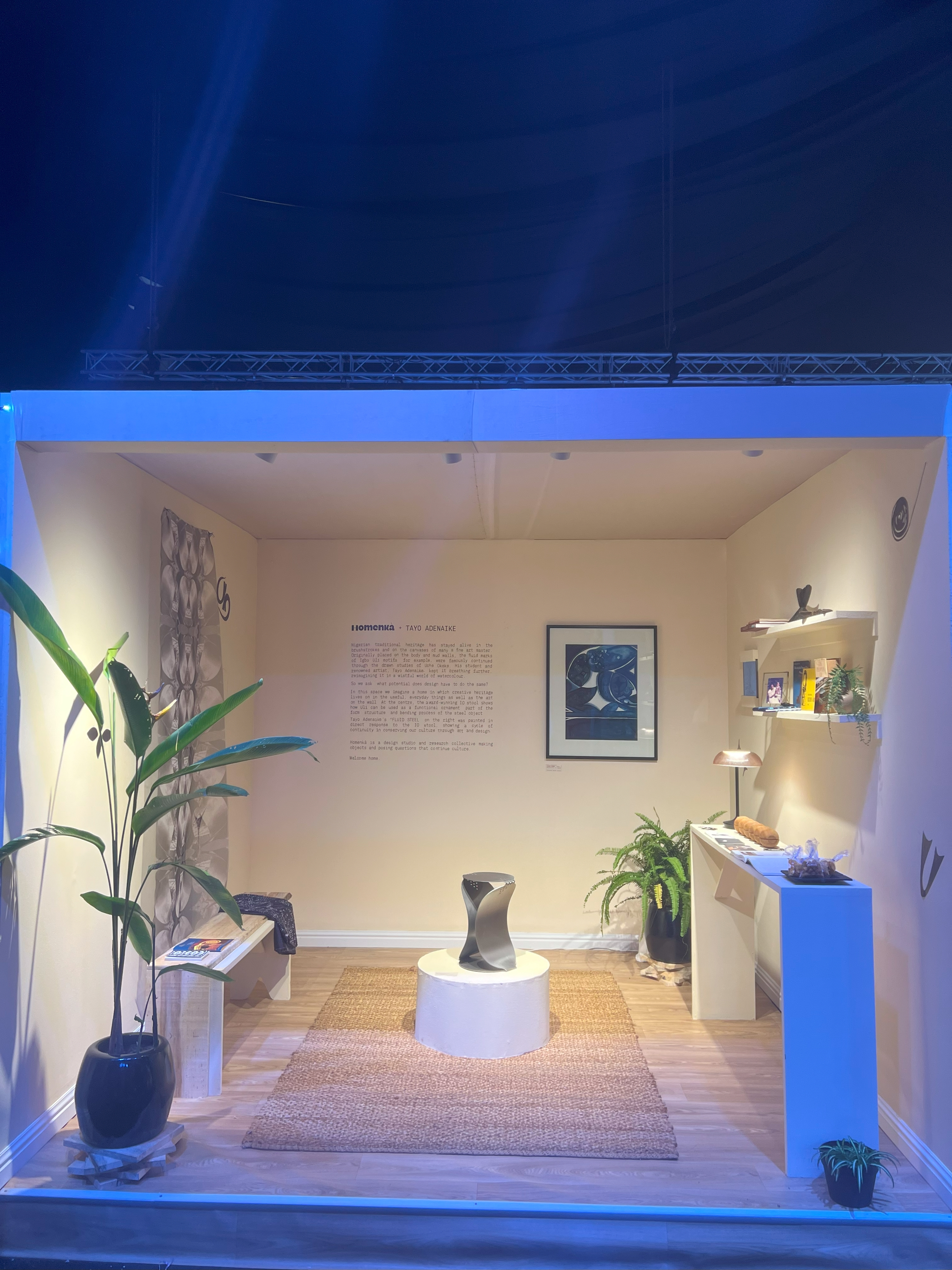
‘Homenka’ collaboration by Zoe Chinonso Ene and Tayo Adenaike
120 years ago, a secret society indigenous to the Igbo culture in Southeast Nigeria developed a writing system. They were the Ekpe secret society and they called this writing system ‘Nsibidi’. Now, in 2024, it re-emerged as one of the important highlights of the design week in a rendition of three mediums: painting; textile; and steel furniture. The project is a collaboration between Zoe Chinonso Ene and Tayo Adenaike, titled ‘Homenka’. Chinonso’s steel stool is shaped like an hourglass and inspired by the ‘oji’ the Igbo kola nut, incorporating elements found in the sacred fruit to make small detailed carvings. Nsibidi is the system used by Igbo people to document their cultural heritage, including heavenly bodies like the sun and stars. Tayo Adenaike uses the Igbo ritual object ‘uli’ to create these illustrative Nsibidi paintings. Adenaike’s painting and Chinonso’s textile both portray symbols derived from the ‘oji’.
‘Akpoti’ by Tosin Oshinowo
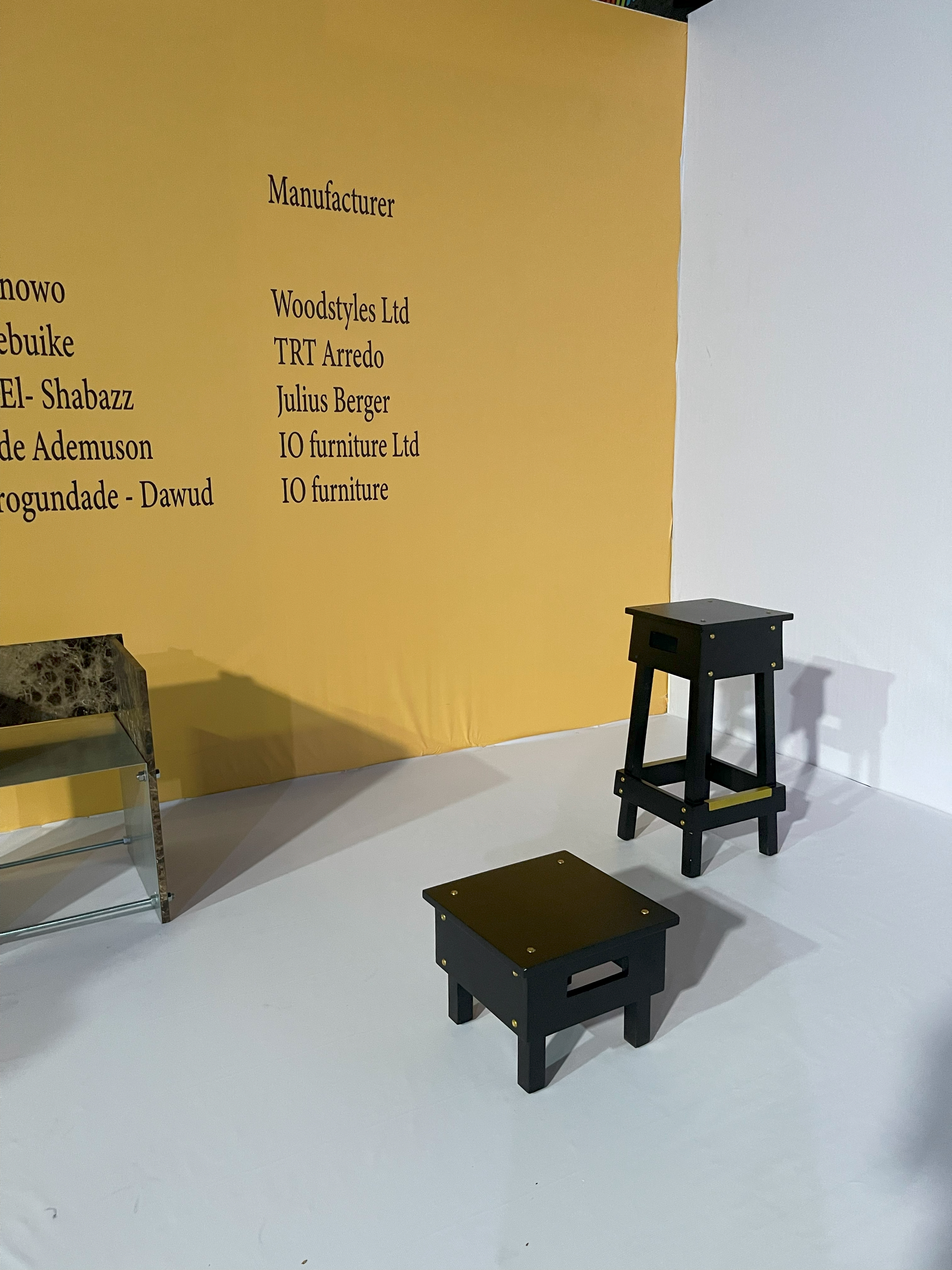
‘Akpoti’ by Tosin Oshinowo
Tosin Oshinowo has a deep knowledge of design references, which shape her practice as both architect and designer. This year, she exhibited a set of stools inspired by West African urban furniture. The project is called ‘Akpoti’ and pays homage to indigenous, anonymously designed stools. The ‘Akpoti’ is made of local materials and celebrates their usage across the country, especially their function in trades and inside the home. 'I wanted to celebrate scarcity and the ability to do more with less. It is a reminder of what beauty can happen when we think differently and work within the limits of our environment,' Oshinowo said.
-
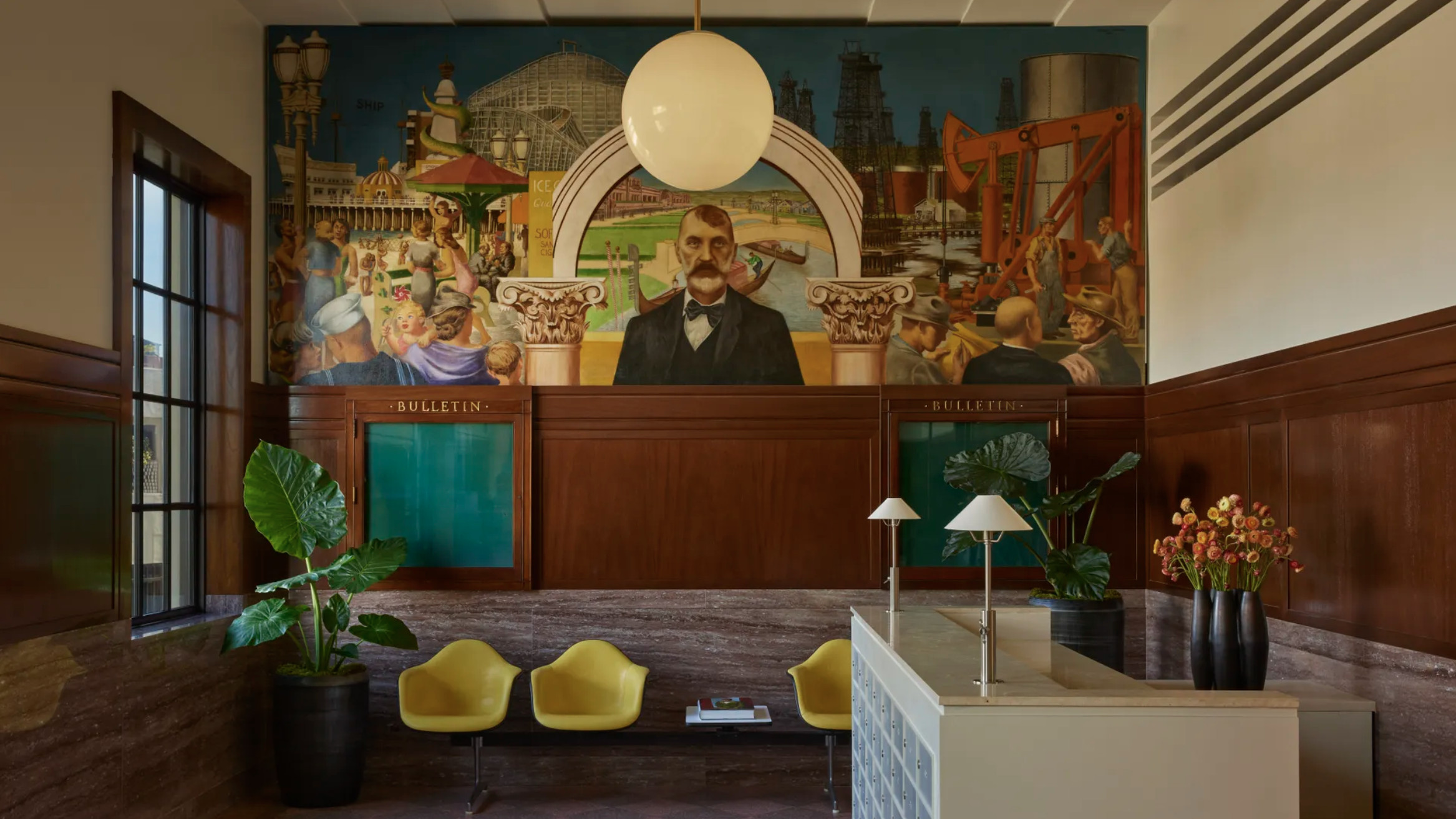 The Lighthouse draws on Bauhaus principles to create a new-era workspace campus
The Lighthouse draws on Bauhaus principles to create a new-era workspace campusThe Lighthouse, a Los Angeles office space by Warkentin Associates, brings together Bauhaus, brutalism and contemporary workspace design trends
By Ellie Stathaki
-
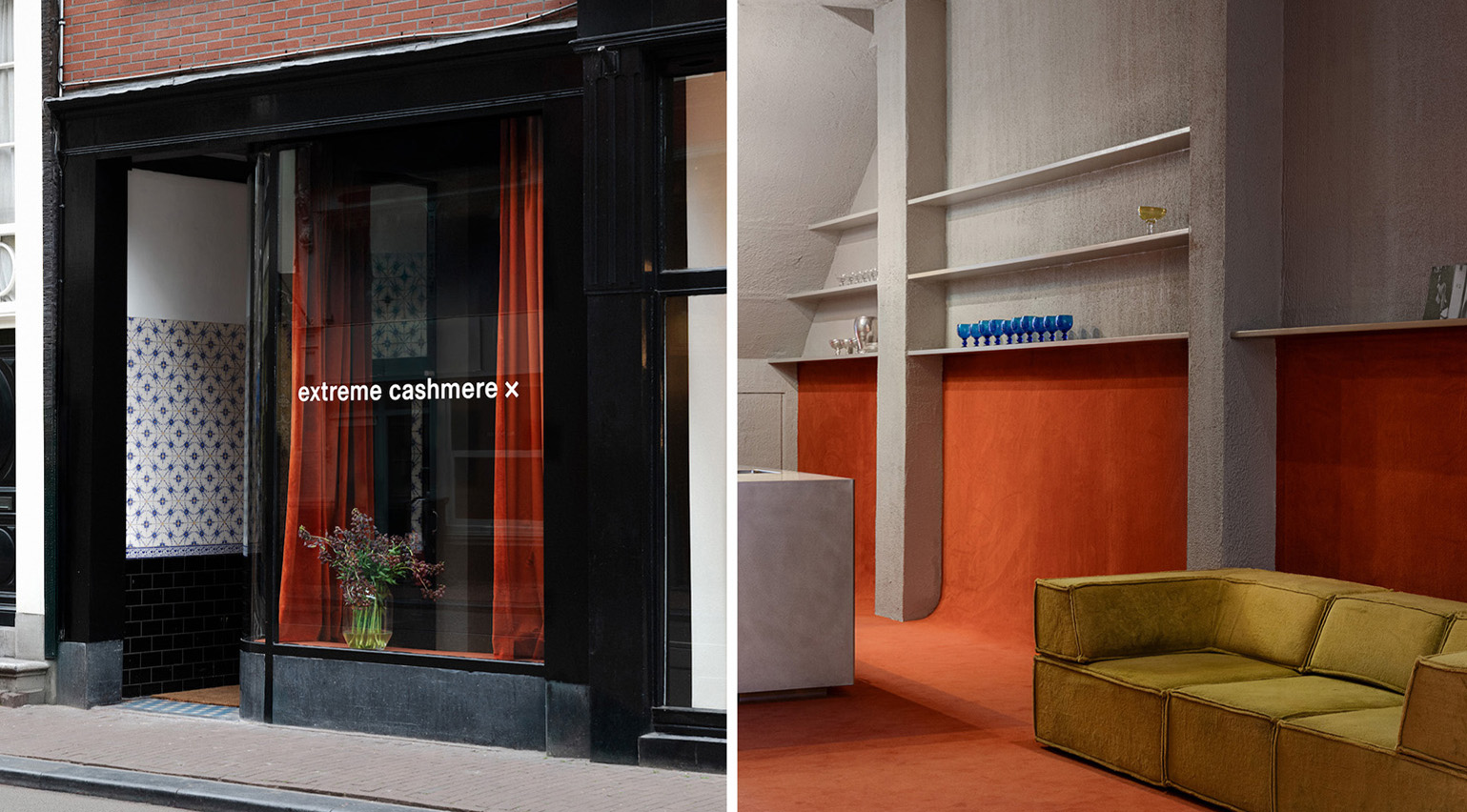 Extreme Cashmere reimagines retail with its new Amsterdam store: ‘You want to take your shoes off and stay’
Extreme Cashmere reimagines retail with its new Amsterdam store: ‘You want to take your shoes off and stay’Wallpaper* takes a tour of Extreme Cashmere’s new Amsterdam store, a space which reflects the label’s famed hospitality and unconventional approach to knitwear
By Jack Moss
-
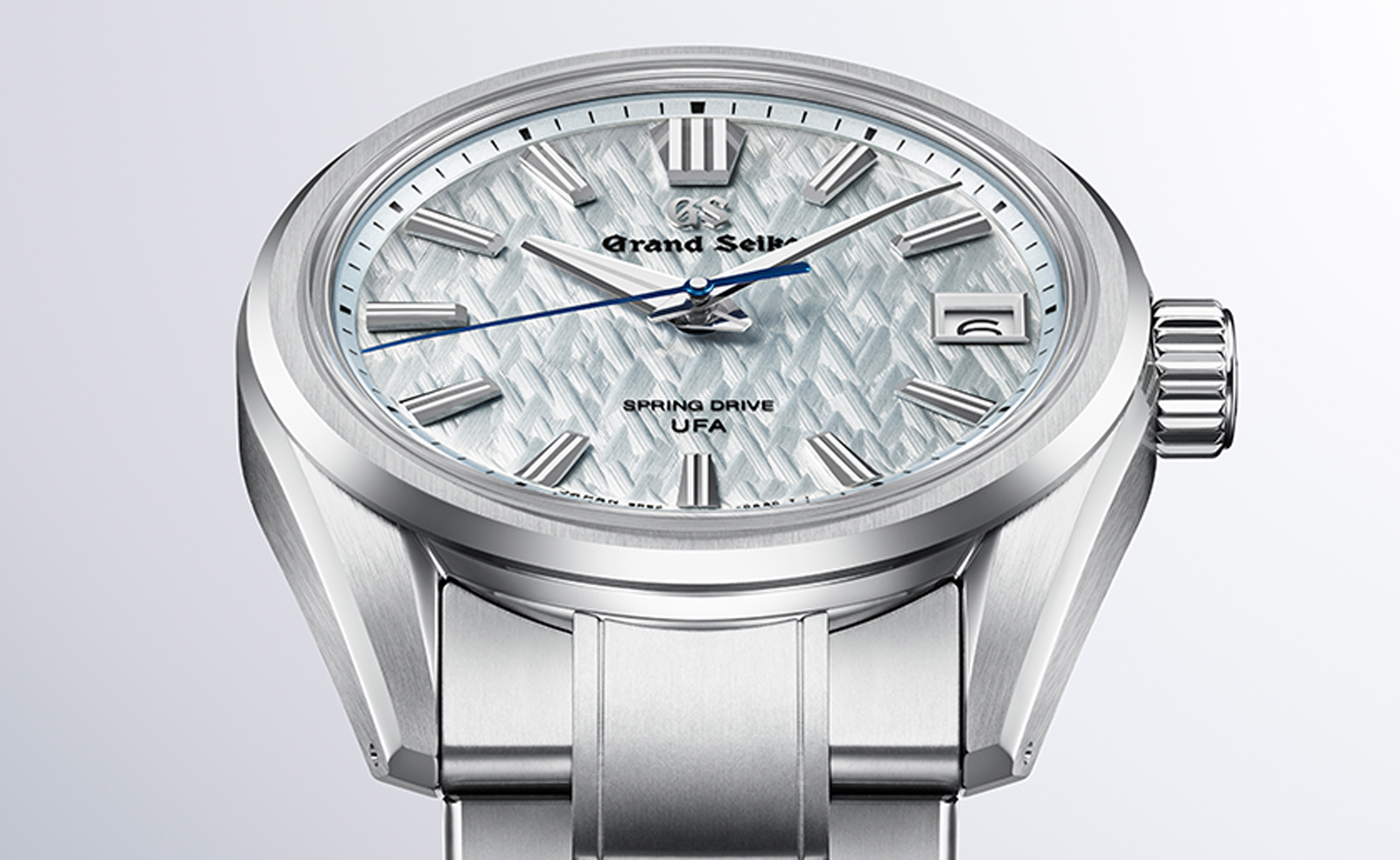 Titanium watches are strong, light and enduring: here are some of the best
Titanium watches are strong, light and enduring: here are some of the bestBrands including Bremont, Christopher Ward and Grand Seiko are exploring the possibilities of titanium watches
By Chris Hall
-
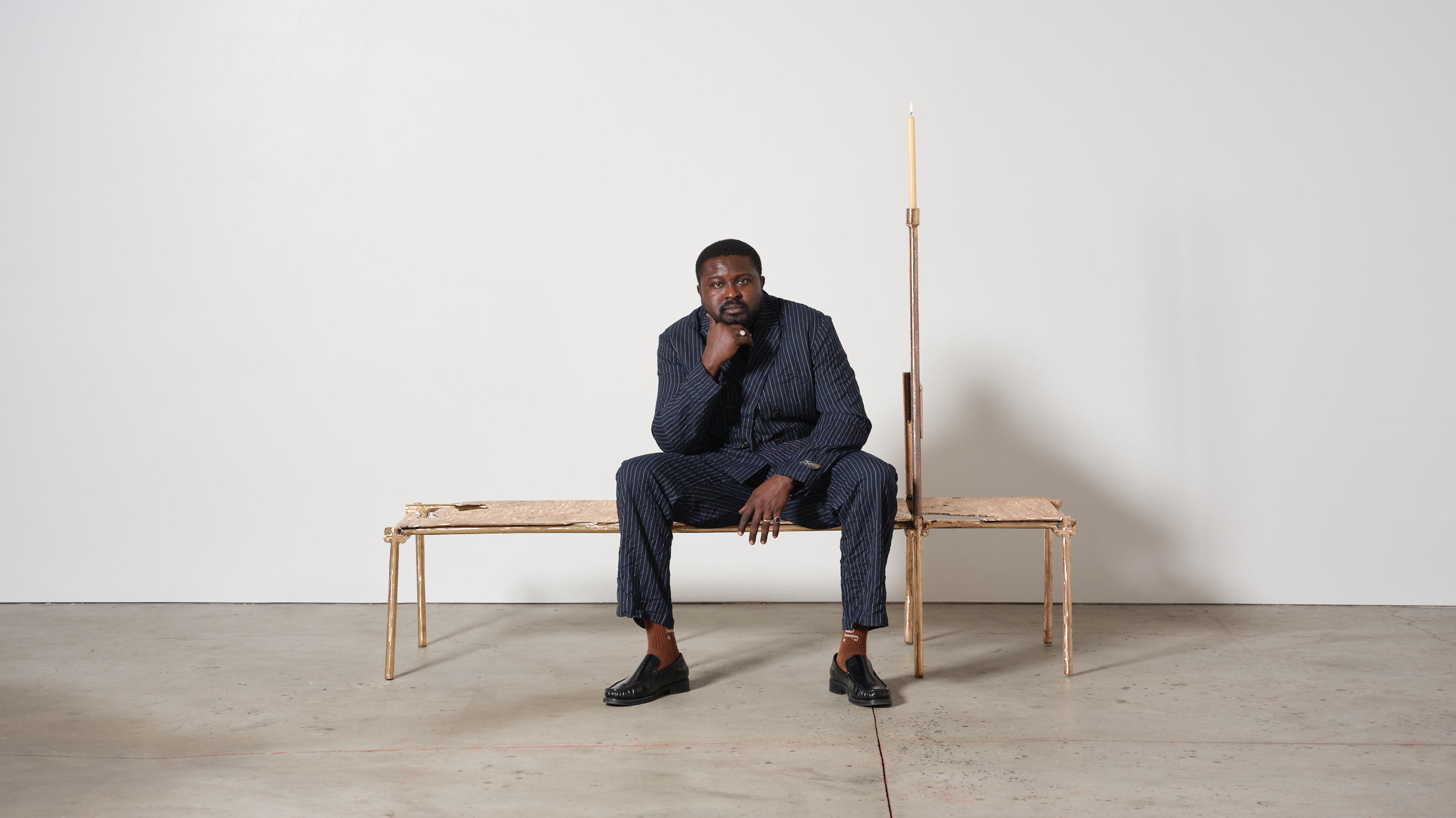 'The more I create, the more questions I have': Nifemi Marcus-Bello on craft and creativity
'The more I create, the more questions I have': Nifemi Marcus-Bello on craft and creativityThe Nigerian designer discusses the evolution of his Oríkì series, the distinct design language of Lagos and the shifting landscape for young African designers
By Ali Morris
-
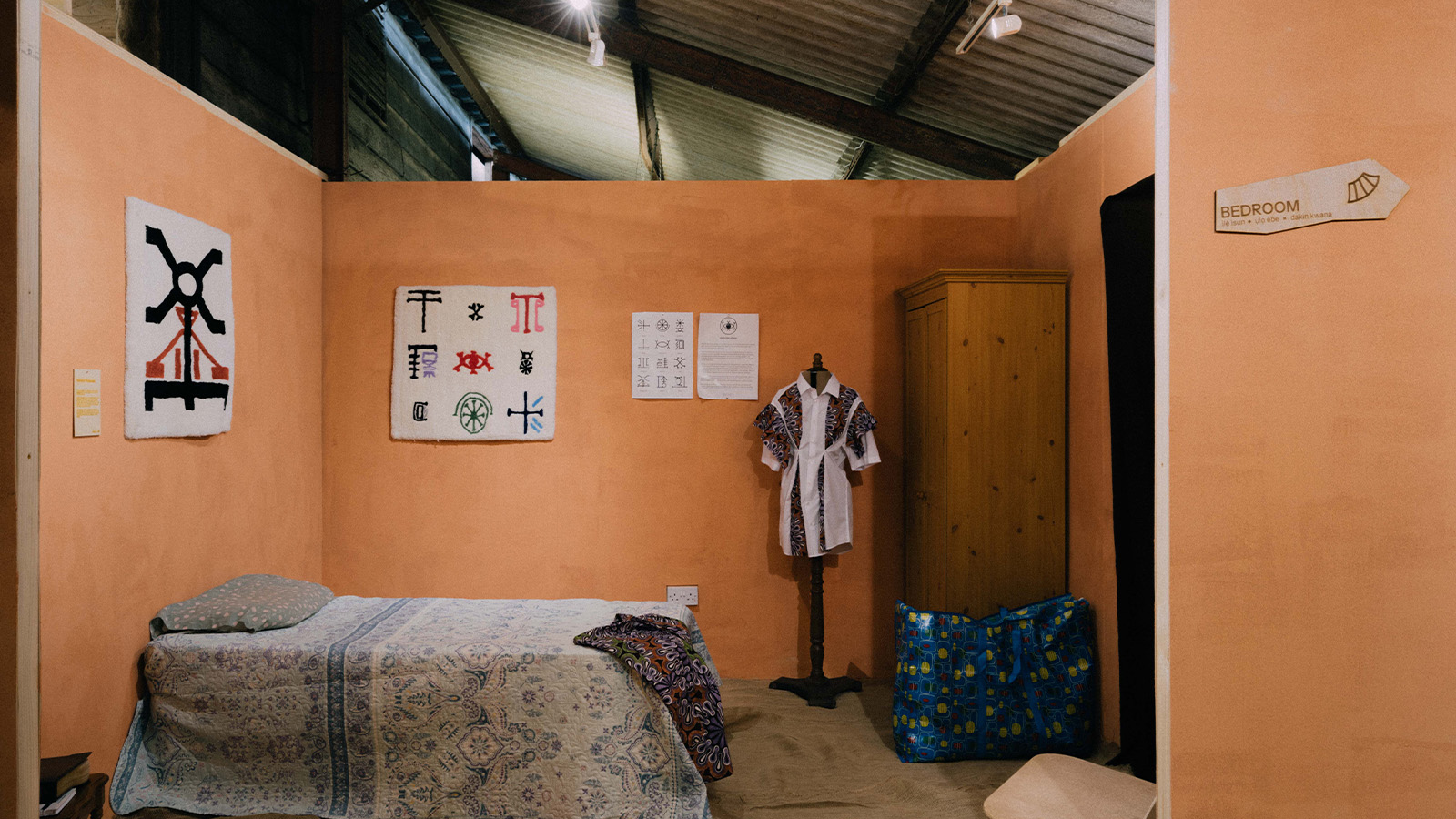 'What Makes a Space Nigerian?' is an exhibition celebrating the key elements of West African Homes
'What Makes a Space Nigerian?' is an exhibition celebrating the key elements of West African Homes‘Our aim was to create a space that Nigerians could connect with', says Moyo Adebayo's on his latest exhibition 'What Makes a Space Nigerian?' which explores what defines a Nigerian home
By Shawn Adams
-
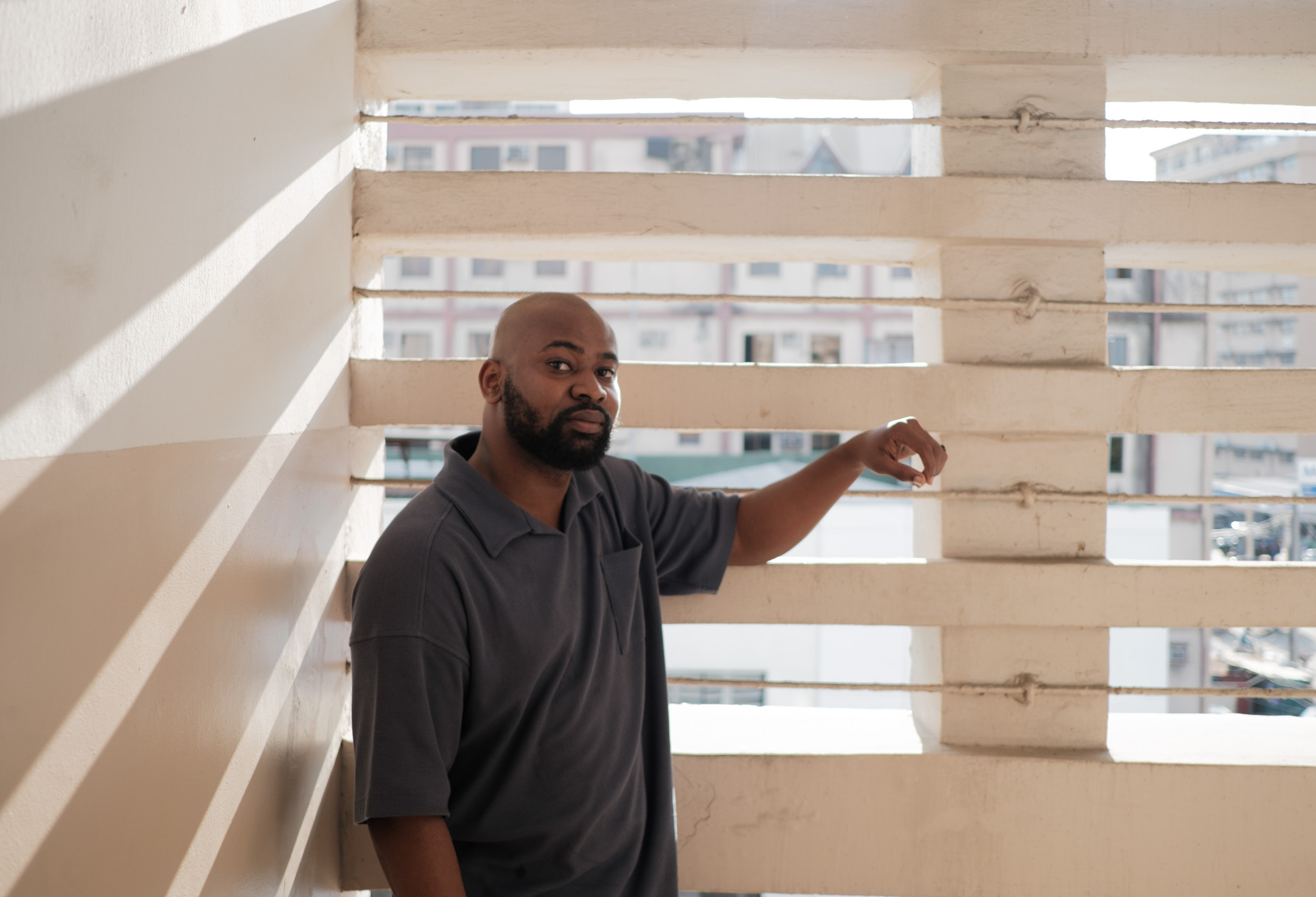 Olorunfemi Adewuyi's community-oriented design honours local culture and tradition
Olorunfemi Adewuyi's community-oriented design honours local culture and traditionIn a rapidly changing world, the route designers take to discover their calling is increasingly circuitous. Here we speak to Olorunfemi Adewuyi on his thoughts on how design has a social and democratic impetus
By Hugo Macdonald
-
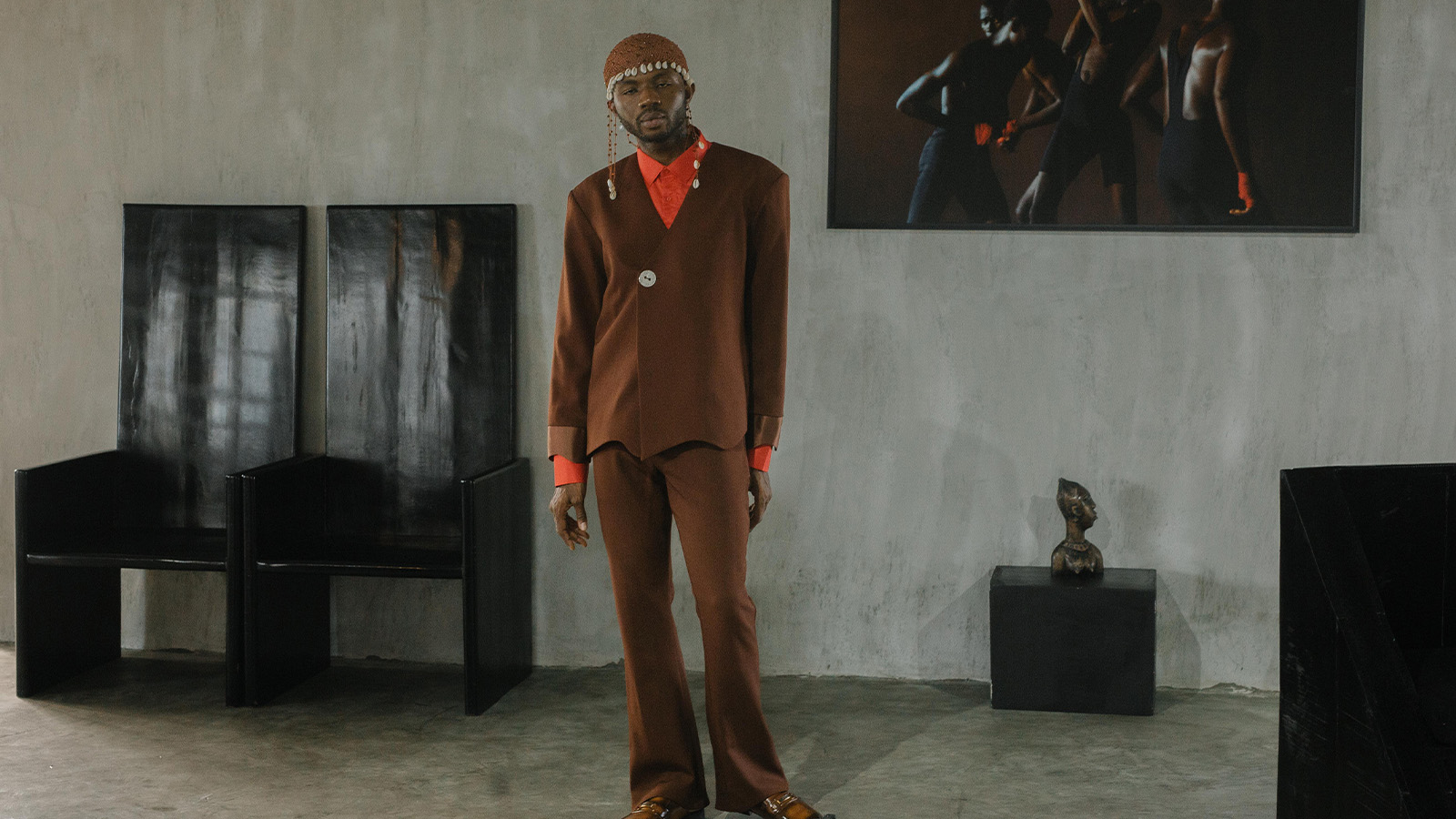 Daniel Obasi discusses Lagos’ Amah members’ club, where vocation and wonder can meet
Daniel Obasi discusses Lagos’ Amah members’ club, where vocation and wonder can meetAmah, a new members’ club founded by photographer, art director and stylist Daniel Obasi, is a creative co-working space and meeting point for Lagos’ creative class
By Mazzi Odu
-
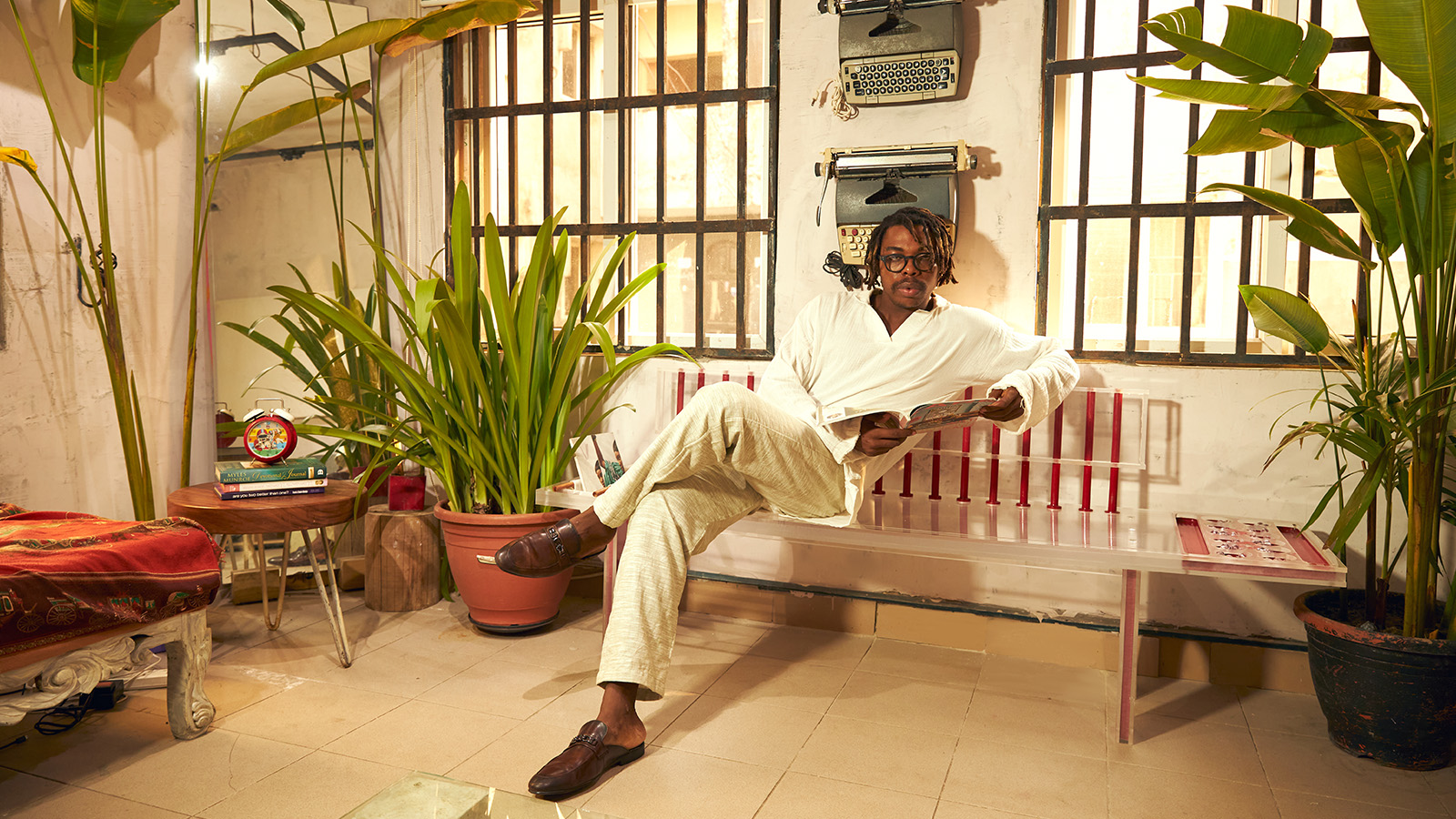 Josh Egesi on his designs and evolving culture: 'Design is a form of cultural documentation'
Josh Egesi on his designs and evolving culture: 'Design is a form of cultural documentation'Nigerian designer Josh Egesi tells Wallpaper* about the creativity behind his studio, design approach, his country's cultural revolution, and venturing into surfboard design
By Mazzi Odu
-
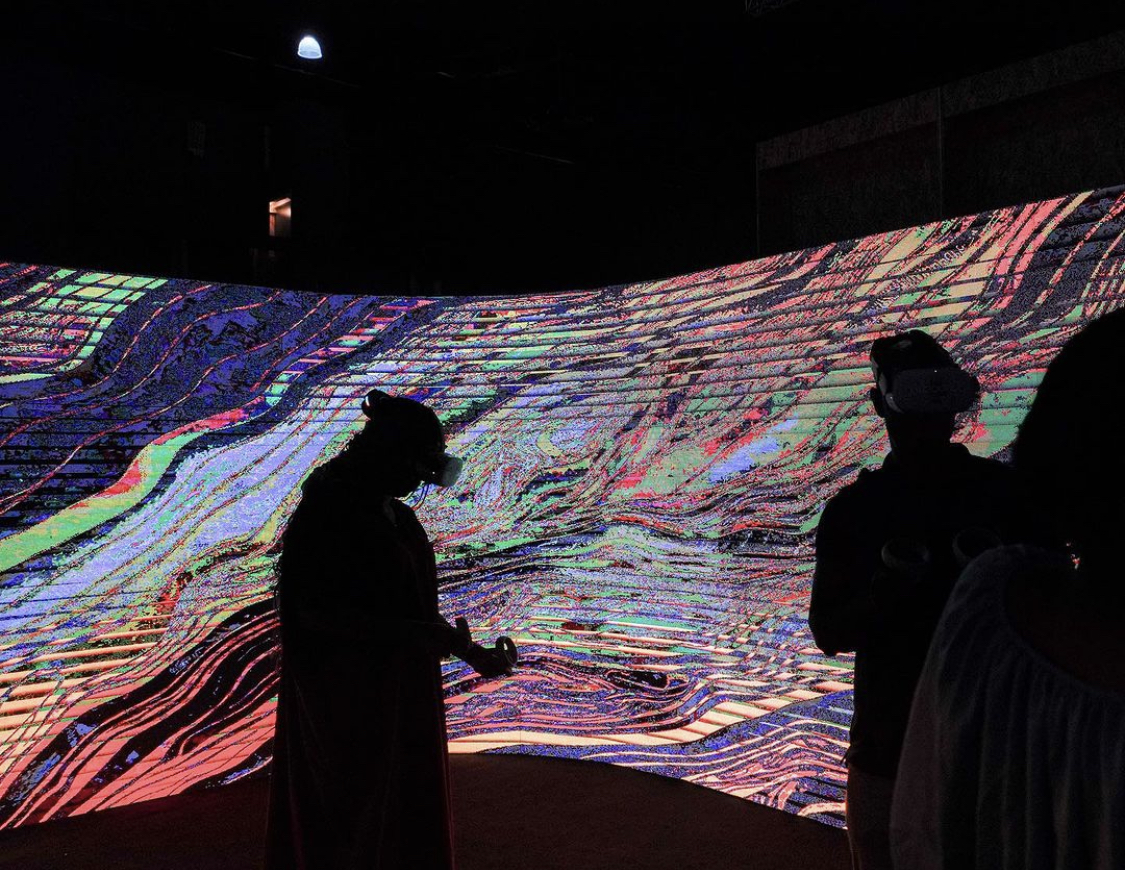 Highlights from Design Week Lagos 2023
Highlights from Design Week Lagos 2023Design Week Lagos 2023 (19-22 October) showcased Nigerian creativity and ideas at Lekki’s Livespot Entertarium
By Ugonna-Ora Owoh
-
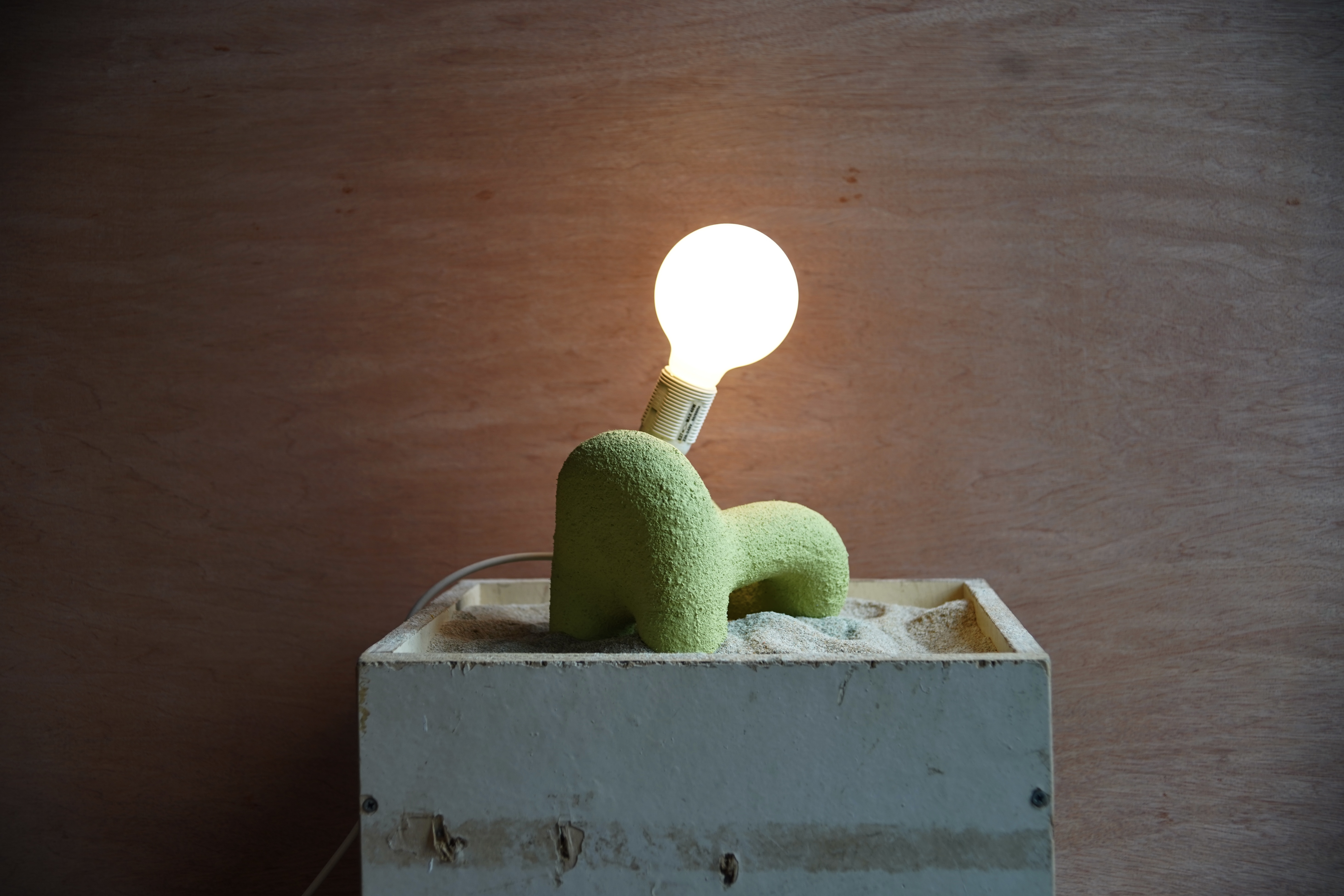 The Lagos Light Series harnesses the power of collaboration
The Lagos Light Series harnesses the power of collaborationThe Lagos Light Series is a collaboration between Lagos and Zurich designers presented at 'Sparked!', as part of Design Week Lagos 2023
By Mazzi Odu
-
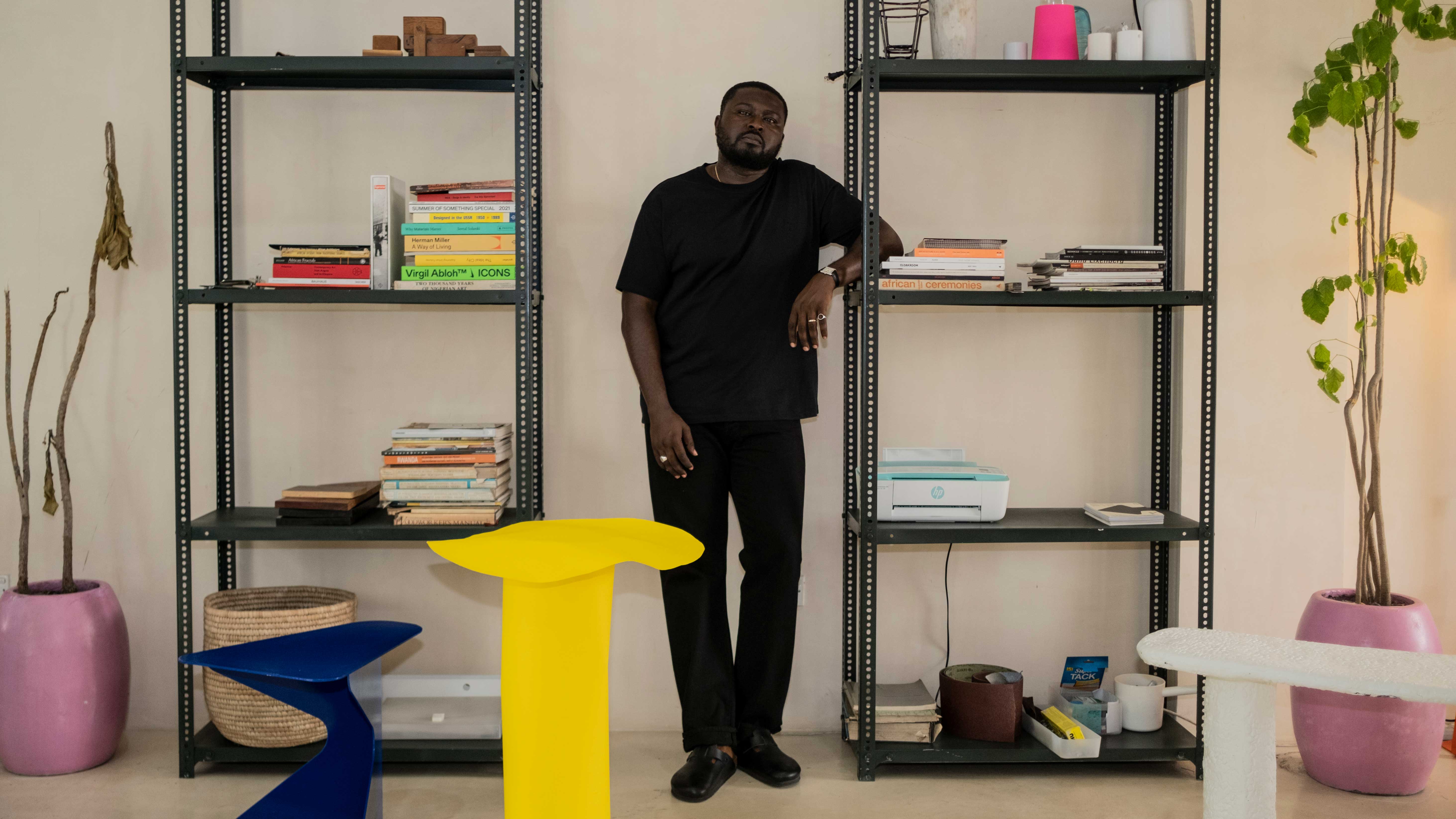 Nifemi Marcus-Bello is the Nigerian designer shaping Africa’s designscape
Nifemi Marcus-Bello is the Nigerian designer shaping Africa’s designscapeAmong Wallpaper’s ‘Future Icons’, Lagos-based designer Nifemi Marcus-Bello speaks of creating a local manufacturing network and documenting design production in Africa
By Ugonna-Ora Owoh